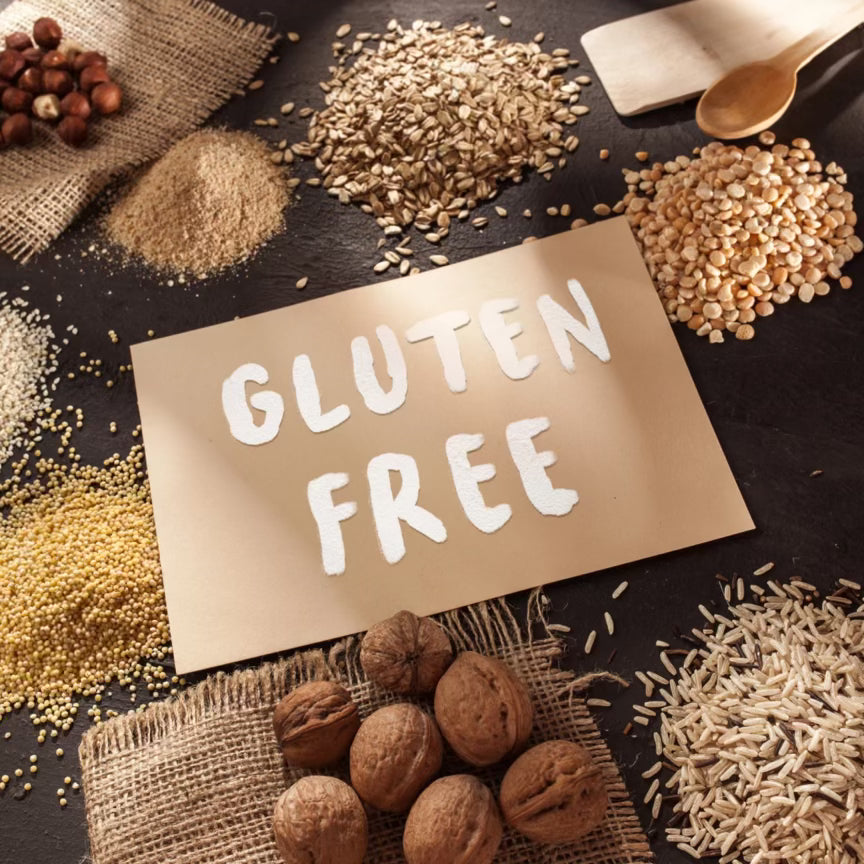These days, an increasing number of people are eliminating gluten, avoiding dairy, or meticulously checking food labels before every meal. This noticeable shift isn’t just a passing trend, it reflects a growing awareness of food intolerances and sensitivities that seem to be on the rise globally.
So, what’s behind the rise in food intolerances? And why are conditions such as lactose intolerance and coeliac disease becoming more commonly diagnosed than ever before?
Let’s take a closer look.
Lactose Intolerance: Not Just a Trend
Lactose intolerance occurs when the body doesn’t produce enough of the enzyme lactase, which is needed to digest lactose, the sugar found in milk and dairy products. The result? Bloating, stomach cramps, gas, and more uncomfortable symptoms that make a cheese board far less tempting.
While some people are born lactose intolerant, for many it develops gradually over time. Interestingly, it’s actually more common globally than not, especially among people of Asian, African, and South American descent. In some cultures, dairy simply wasn’t part of the traditional diet, so the body never evolved to digest it well.
In the UK, awareness of lactose intolerance has grown, and so has the availability of alternatives. From almond milk to coconut yoghurt, there's now a whole aisle in the supermarket dedicated to dairy-free living.
Coeliac Disease: More Than Just a Gluten Sensitivity
Coeliac disease is a serious autoimmune condition where the ingestion of gluten, a protein found in wheat, barley, and rye, triggers the immune system to attack the lining of the small intestine. This isn’t just a mild upset stomach; it can lead to malnutrition, chronic fatigue, skin rashes, and long-term health complications if left undiagnosed.
It’s estimated that around 1 in 100 people in the UK have coeliac disease, but many remain undiagnosed. The symptoms can be vague or mistaken for other conditions like IBS, which is why awareness is so important.
While gluten-free living was once seen as a fad, for those with coeliac disease, it’s a medical necessity. Thankfully, the food industry has come a long way. From gluten-free pasta or pizza to certified bakery products, it’s now easier than ever to live well without wheat.
So, Why the Rise?
Some experts suggest that our modern diets, packed with ultra-processed foods, preservatives, and a lack of diversity, could be contributing to a rise in gut issues. Add environmental factors, stress, and changes in farming practices, and it’s no surprise our digestive systems are under pressure.
On the flip side, we’ve also become much better at recognising and diagnosing these conditions. What once might’ve been dismissed as “just a sensitive tummy” is now taken seriously, with more people advocating for their health and seeking answers.
Listen to Your Gut (Literally)
If you suspect you might have a food intolerance or coeliac disease, don’t self-diagnose. Speak to a GP or a dietitian, and go through proper testing. Cutting out food groups without guidance can sometimes do more harm than good.
At the end of the day, we’re all different and so are our guts. The key is tuning in, paying attention, and giving your body what it truly needs.
As I conclude, know that you are not alone on this path to better health and wellness. Your journey is unique but together we form a community of strength and support.
Let’s thrive together,
Cristina xx






